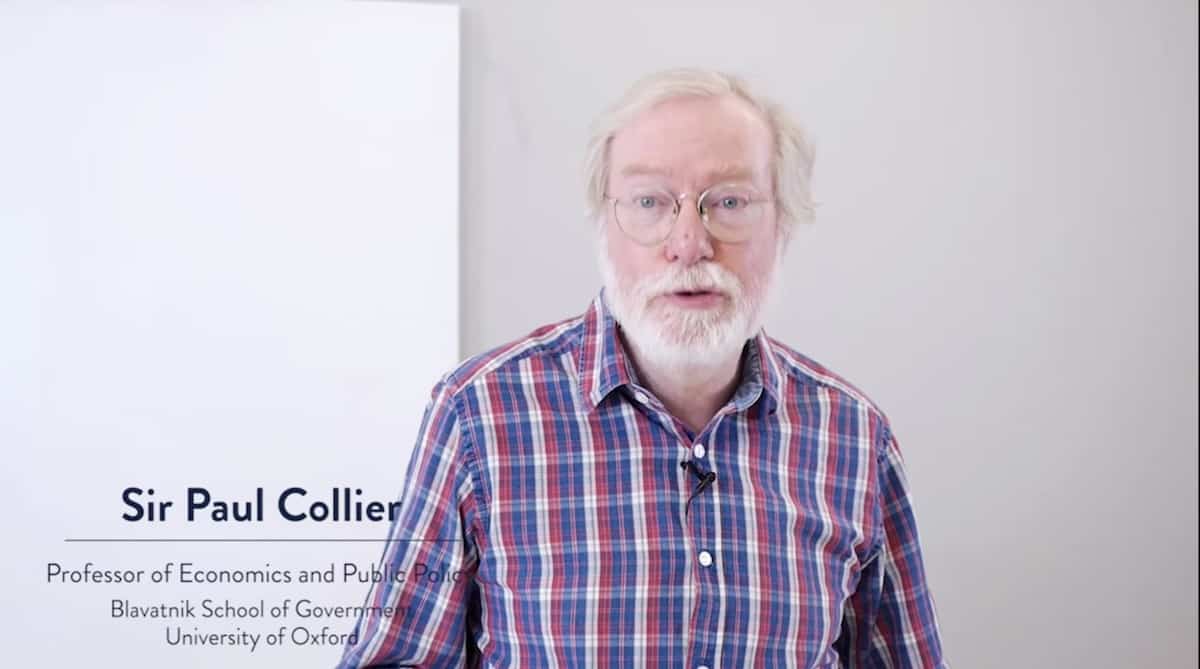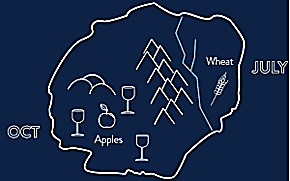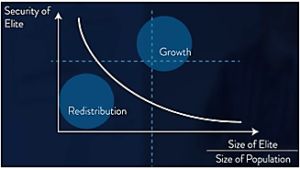In-Depth Review: Oxford’s From Poverty to Prosperity: Understanding Economic Development
A completely charming, highly informative course for those not terribly familiar with global economics. (And, trust me, “charming” is the last word I’d ever expect to use about economics.)
This review was written by Karen Carlson. Karen has been an avid MOOC taker since 2013 and has lost count of the number of courses she’s taken. She primarily studies the humanities (with some math and science thrown in for good measure). The review was first published here.
Intrigued By A MOOC From Oxford

When I saw Oxford was now on edX, I was seriously psyched. I’ve become rather used to taking courses from Harvard and MIT at this point (and Stanford and Duke and Penn and…) but wow, Oxford? THE Oxford? I was very curious to see what they’d come up with. But… did it have to be economics?
For me, economics is one step below project management on the scale of things I never want to think about. I signed up anyway, figuring I’d take a peek and unenroll. I guess I was expecting something out of Shadowlands: dark, musty rooms with overstuffed chairs, stuffy dudes running around in weird cloaks, and boring ugly words like “marginal utility” and “commodities”, formulae and graphs. Instead, I found wonderful stories about incompetent but strong farmers bullying competent but weak farmers into submission and doing business with the apple orchards in the next valley and what happened in England when the Romans pulled out in 410 CE and all about the Dutch flooding the fields to hold off the Hapsburgs… So I hung around.
Approachable Economics for Beginners (and Econo-phobes)
The first three weeks continued in storytelling vein, with occasional mentions of scary words in a nonintrusive way, like “in other words, we need a market” or “the technical word for this is decentralization”. The real world was always part of the moral of the story, and I found it fascinating to hear why 20th century Tanzania developed much more peacefully than Kenya in spite of having the same mix of tribal cultures thrown together by European-drawn boundaries (that third week on narratives and identities, and their effect on national policy and democracy, also struck a lot closer to home; frankly, it scared what was left of the hell out of me because it put a vocabulary and a dismal prediction to what I see snowballing every day). Things got a bit more nitty-gritty in weeks four and five, but by then I really wanted to find out how Buttonopolis (aka Qiaotou, China, where 2/3 of the world’s buttons are made) came about, or how the tiny island nation of Mauritius developed its economy via serendipitous garment manufacturing.
Each week included video lectures, delivered to an unseen/unheard class (maybe; it might have just been production crew or even an empty room, but it was convincing and served the purpose) rather than read-to-camera, a technique more MOOC teams should consider. Early on, some ungraded “Think!” activities were included, such as: Which Risk of Protest graph do you think applies to a democracy, and which to an autocracy? What would you advise the Head Thug to do when the farmers see another bigger stronger thug coming over the hill? (My one problem with the course was a visceral reaction to the repeated use of the word “thug”, since it’s becoming a racial epithet in America.) A short multiple choice quiz closed out each week, along with a discussion prompt. During the course, students submitted questions which were answered in a Week 5 Youtube Q&A session featuring Prof. Collier and MOOC team leader Rafat Ali Al-Akhali. Week 6 was set aside for the final peer-assessed assignment applying concepts from the course to a country of our choice.
Each of the three graded components – quizzes, discussion, final essay – weighed fairly evenly in the final grade, and skipping any one would have made a passing grade impossible (or at least, very difficult). At first I was going to skip the discussion element, maybe even the final essay, out of a combination of intimidation and respect for the other students who came from all over and were, from what I could see, earnestly focused on learning something that would contribute to meaningful change for their countries and the world. But the course was engaging and motivating enough to convince me to give it a shot. I’m not particularly proud of the quality of my comments or essay, but I came quite a ways from less-than-zero.
Oxford has done a terrific job here making the material accessible and intriguing for beginners (and econophobes).
Oxford has done a terrific job here making the material accessible and intriguing for beginners (and econophobes). And it turns out, the course material fits into their motivation for making the course: Week 4 lists “an informed citizenry” as one of the key elements to changing a society, and the final lecture underlined the mission:
“How can that knowledge be applied? What can you do with it? And I think there are two aspects to that.
‘One is, how can you, as an individual, put that knowledge to use in the life that you lead, the career that you forge? …
‘But then there’s a larger role, which is that, you are a citizen in your own society and you’re a citizen in the world. And there are these two struggles. The struggle to set domestic policies that are more conducive to the escape from poverty, and the struggle to set international policies so they are more conducive to the escape from poverty. You, as a citizen, can play your part in that and I hope you will.”
– Sir Paul Collier
We’re trying over here, Professor, really we are, many of us. But some of our leaders seem determined to send us all back to the darkest parts of the Dark Ages, and too often they’ve rigged the game in their favor.
Learning About The World
I can highly recommend this course for anyone who’s interested in getting an intro to economics, or is just curious about how the world works, in terms of haves and have-nots and why that’s the case.
I can highly recommend this course for anyone who’s interested in getting an intro to economics, or is just curious about how the world works, in terms of haves and have-nots and why that’s the case. There’s nothing quantitative in it at all; there are a few graphs, but they’re about visualizing concepts, not learning formulas. And, as shown above, it includes its own motivation.
The best part of all these MOOCs – this one, the International Law series, the ChinaX series, all of them taken with people from everywhere – is that I’m beginning to know a little about the world beyond my window. I’ve discovered the best way to learn about the world is to learn about the world, not wring my hands and whine about being stupid. I can do a quiz game to find Bahrain on a map or memorize the capital of Azerbaijan – and all that is very helpful – but it’s another thing entirely to find out why Zambia sends some of its exports through Mozambique and some through South Africa. And, in the process, learning more about being an informed and effective citizen right here at home.
Class Central is looking for reviewers and regular contributors. If you’ve ever finished a MOOC and want to write a critique to help future students considering taking that course, we want to hear from you. Drop us a mail.







